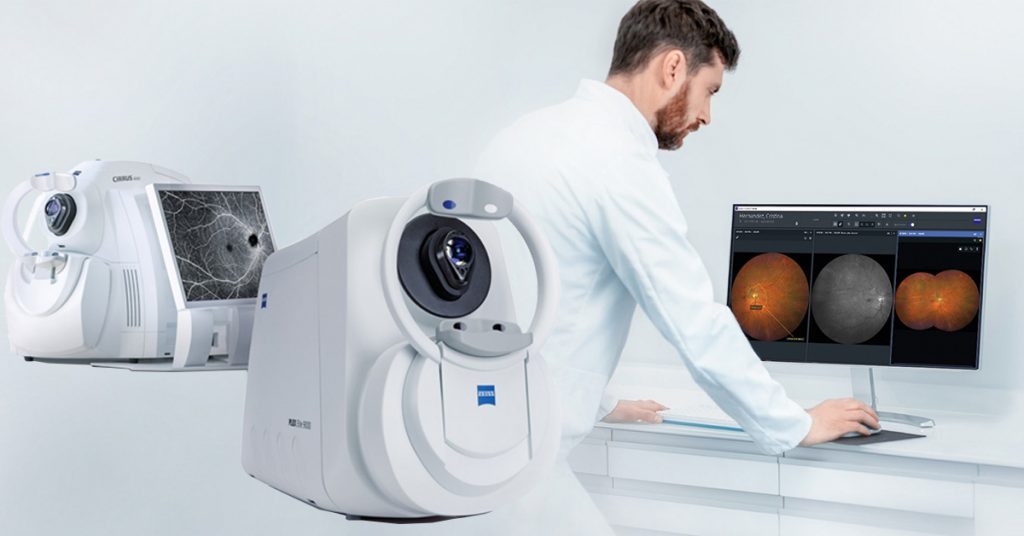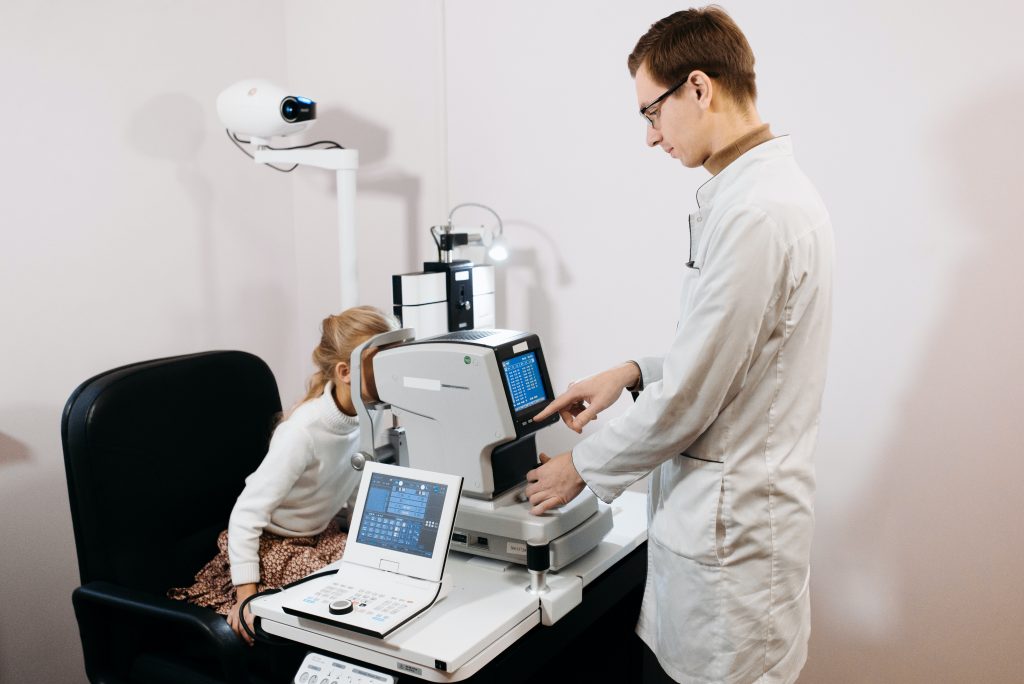Macular degeneration, also known as age-related macular degeneration (AMD), is a common eye condition and a leading cause of vision loss among people age 50 and older. It involves the deterioration of the macula, which is the small central area of the retina that controls visual acuity. The macula’s health is crucial for tasks requiring sharp vision, such as reading, driving, recognising faces, and seeing objects in fine detail.
Macular degeneration is categorised into two types:
Dry (Atrophic) AMD: This is the more common form, accounting for approximately 90% of cases. It occurs when the macula gets thinner with age, and small clumps of protein called drusen grow. Vision loss in dry AMD usually progresses slowly.
Wet (Neovascular) AMD: Though less common, wet AMD is more severe and can lead to faster loss of vision. It happens when abnormal blood vessels grow under the retina and leak fluid and blood, damaging the macula.
These are the symptoms of Macular Degeneration:


Treatment for macular degeneration (AMD) varies depending on whether the condition is in its early stages, its type (dry or wet), and the severity of the vision loss. Here’s an overview of the current treatment approaches:
While there’s no cure for dry AMD, which is the more common form, certain strategies can help manage the condition and slow its progression:
Wet AMD can progress rapidly, but several treatments are available to slow the loss of vision:
For both dry and wet AMD, regular monitoring of vision is crucial. Patients are often advised to use an Amsler grid to check for changes in their central vision. Any new symptoms or changes should be reported to an eye care professional immediately, as early detection of wet AMD and prompt treatment is critical to preserving vision.
It’s important for individuals with macular degeneration to work closely with their eye care professional to determine the most appropriate treatment plan based on their specific condition and needs.
Our approach to this condition is to monitor you more frequently and work with you to help you understand the risk factors, the condition and how it will affect your vision as well as understanding what low vision aids may work for you.




Personalised Care for a Clearer, Brighter World.